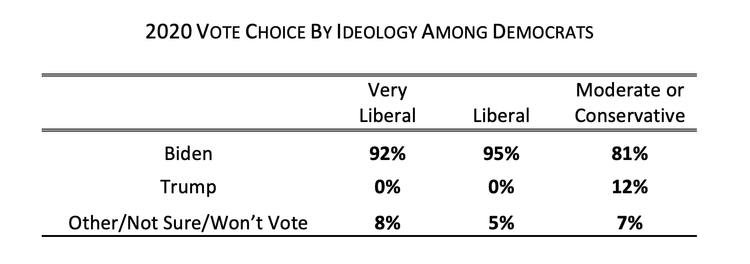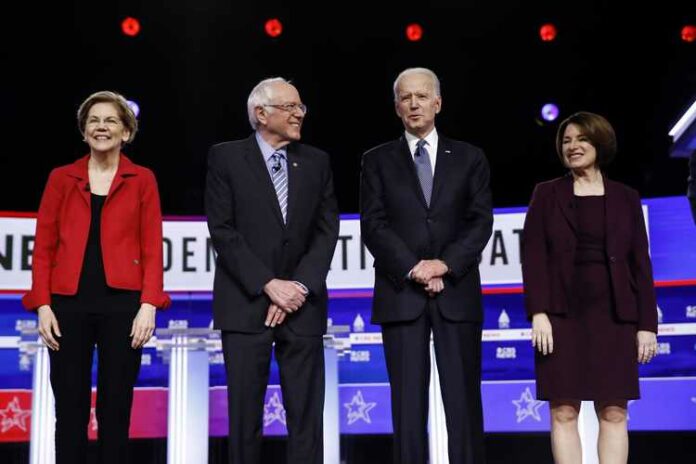At the end of March, President Trump was on a roll: Having been acquitted by the Senate in February, he was taking credit for a coronavirus lockdown that “saved 2 million lives,” in his estimate, and was an odds-on favorite to win the 2020 election (a plus-seven-point margin in the RealClearPolitics betting average). RCP’s polling average placed his job approval rating at 47.4%, with over 50% approved of his handling of the COVID-19 crisis. In the battleground states, he was running close to even with Joe Biden.
Three months later, Trump’s approval rate is at 41.5%, and his disapproval rating close to 56%, the highest it has been in two years. Betting odds now favor Biden at 59.1% to 39.6% (RCP) and Biden leads Trump by nearly nine percentage points nationally. Trump trails by three-to-7.5 points in Wisconsin, Florida, Michigan, Pennsylvania, North Carolina, and Arizona, and is running only 2.5 points ahead in Texas. This turn of events has led pundits like Frank Bruni of the New York Times to ask “Is Trump Toast?” Even David Brooks went so far as to declare that “Americans have decided to get rid of Donald Trump.” Others have taken the game one step further, worrying that the president will lose but contest the legitimacy of his defeat.
Are these prognosticators right to say the election outcome has already been decided? If the election were held today, they would surely be right because the election result would be a Biden victory. Indeed, if Trump continues to act so that the election is a referendum on his presidency, he will be a one-term leader.
Trump’s best chance to prevail would seem to be: unite the GOP in opposition to a liberal threat, and somehow capture a majority of independents. In the last election, Trump captured a higher proportion of Republicans than Hillary Clinton did of Democrats — YouGov’s 2016 re-contact survey suggests that Clinton lost a substantial share of Bernie Sanders’ primary voters, with 16% of Democrats who favored Sanders in May voting for Trump, Gary Johnson, Jill Stein, or some other candidate in the general election.
Biden main vulnerability at this point is within his own party, but in a different way than Clinton’s in 2016. Biden has shifted some of his policy positions to appease the left, but this move carries risks of losing moderates in his party. According to YouGov’s July 1 poll, a little over 25% of Democrats consider themselves “very liberal” ideologically; another 30% thought of themselves as merely “liberal,” while 42% consider themselves “moderate,” “conservative,” or “very conservative.” Interestingly, in that same July 1 poll, Biden showed some weakness most among the more moderate members of his party:

At the moment, Biden appears to have the support of over 90% of “liberal” and “very liberal” Democrats — moreover, virtually none of the defecting 10% say they would actually vote for Trump. By contrast, Biden is only at 81% among moderate and conservative Democrats, with 12% saying at this point they would vote for Trump. Surprisingly — given Biden’s moderate reputation during the primaries — the danger to him in November appears to come from center-right Democrats, rather than liberals.
Biden’s recent struggles among party moderates may be related to recent moves he has made to attract the Sanders-Warren wing of his party. He has proposed higher corporate and individual top-earner tax rates, a $15-per-hour minimum wage, lowering Medicare eligibility to age 60, free college tuition for low-income students, ending the supply of military weapons to police departments, and an economic stimulus that’s “a hell of a lot bigger” than the $2 trillion CARES Act. While Biden has not endorsed “Medicare for all” or the Green New Deal — two policies that sharply divide the “very liberal” and “moderate” voters within the Democratic Party — he has clearly moved to the economic left, which could entail some lost votes among more fiscally conservative Democrats.
One obvious development that could shift Biden’s support among Democrats is his choice of a running mate. This decision is crucial as voters are aware of his age and want to be reassured that the country would be in good hands if something happened to Biden. In addition, many think his choice needs to be embraced by Democrats of color, who, given recent events, should be represented on the ticket.
The ideological differences within the party manifest themselves on the running mate selection. Sen. Elizabeth Warren leads in the latest YouGov poll among very liberal Democrats but loses to Sen. Kamala Harris among liberal Democrats — and among moderates by double digits. Choosing a lower-profile candidate, such as Susan Rice or Rep. Val Demings, would allow Biden to sidestep the immediate ideological ramifications of his choice, but doing so would also have a less predictable effect on his campaign.
In sum, Joe Biden currently seems to have a substantial advantage over Donald Trump when it comes to the November election, but could face danger if Trump manages to refocus Democrats on the tensions within their own party. Biden knows he has to satisfy progressive Democrats to succeed, but further moves to the left risk losing more moderate voters. His choice of vice president will undoubtedly have some impact on how he balances these two factions — picking Harris might require some additional outreach to Sanders/Warren Democrats, while selecting Warren would leave him with even more work to do among his moderates.
It is worth pointing out, however, that the ideological distribution of voters in the battleground states of Michigan, Pennsylvania, Wisconsin and Florida are more moderate and conservative than those in solid Democratic states like California, Massachusetts, New York and Vermont, and, further, that the former group of voters will end up selecting the next president.
Brett Parker is a JD/PhD student at Stanford University.






